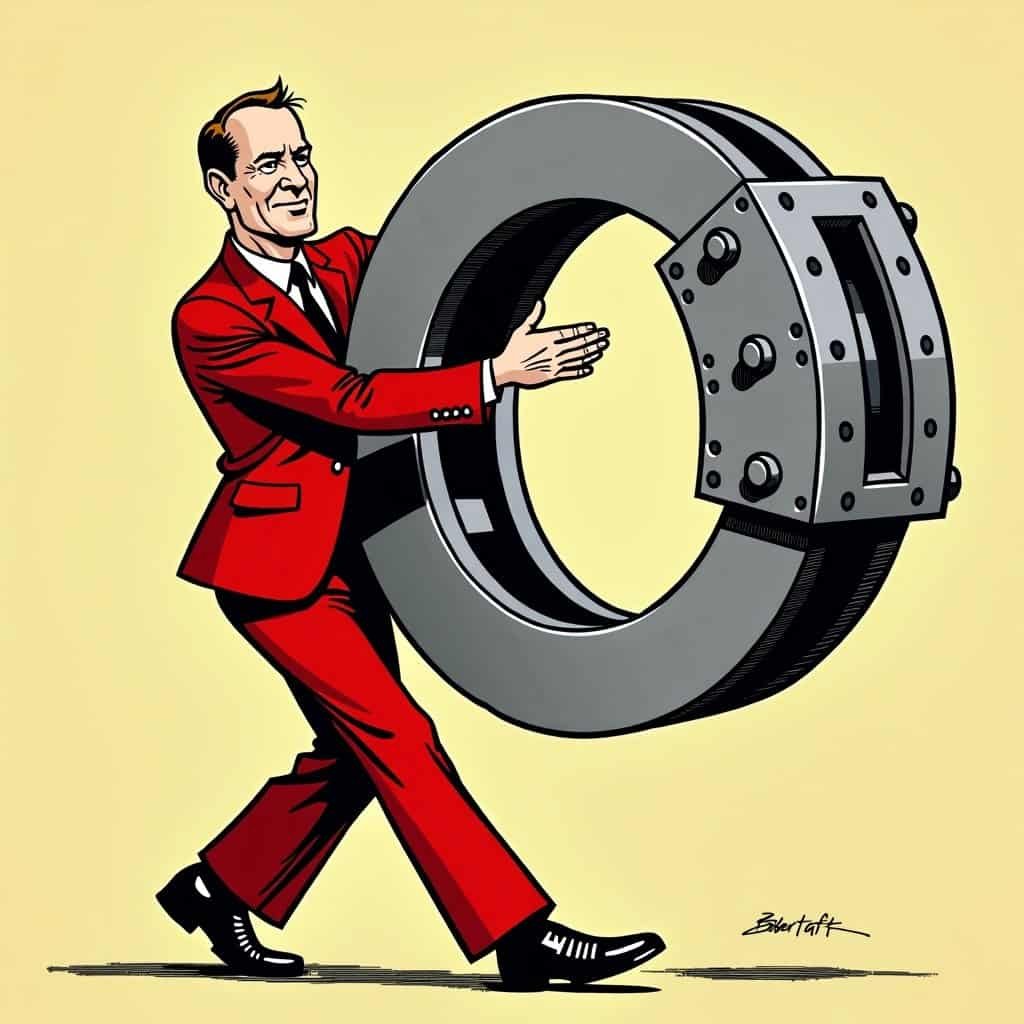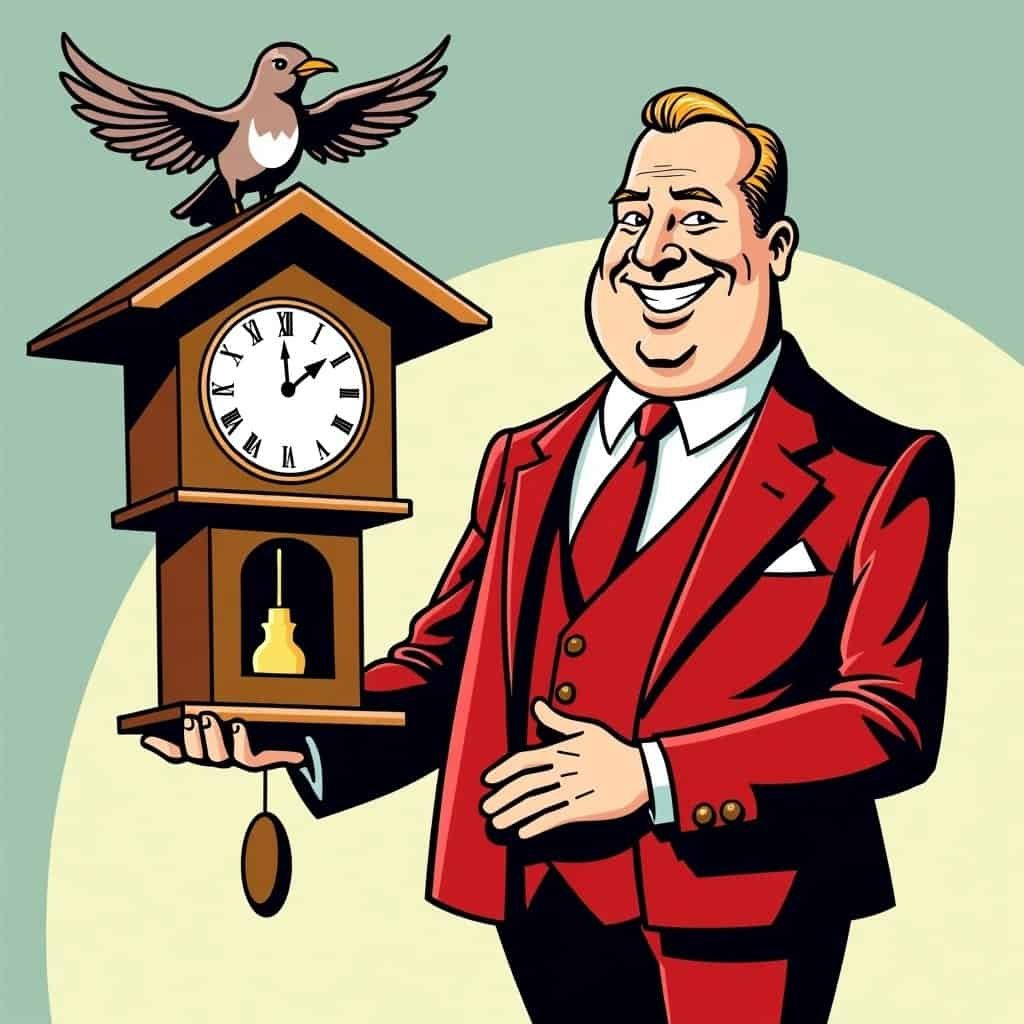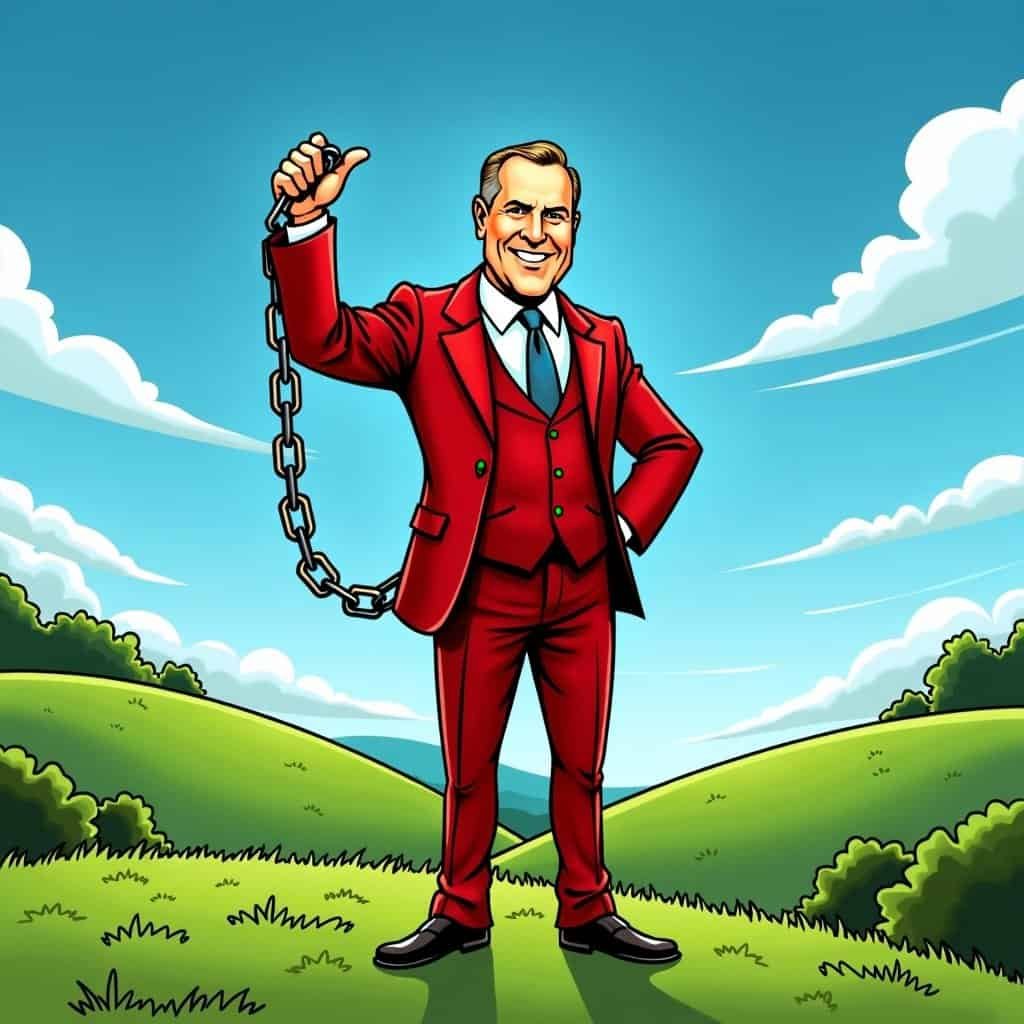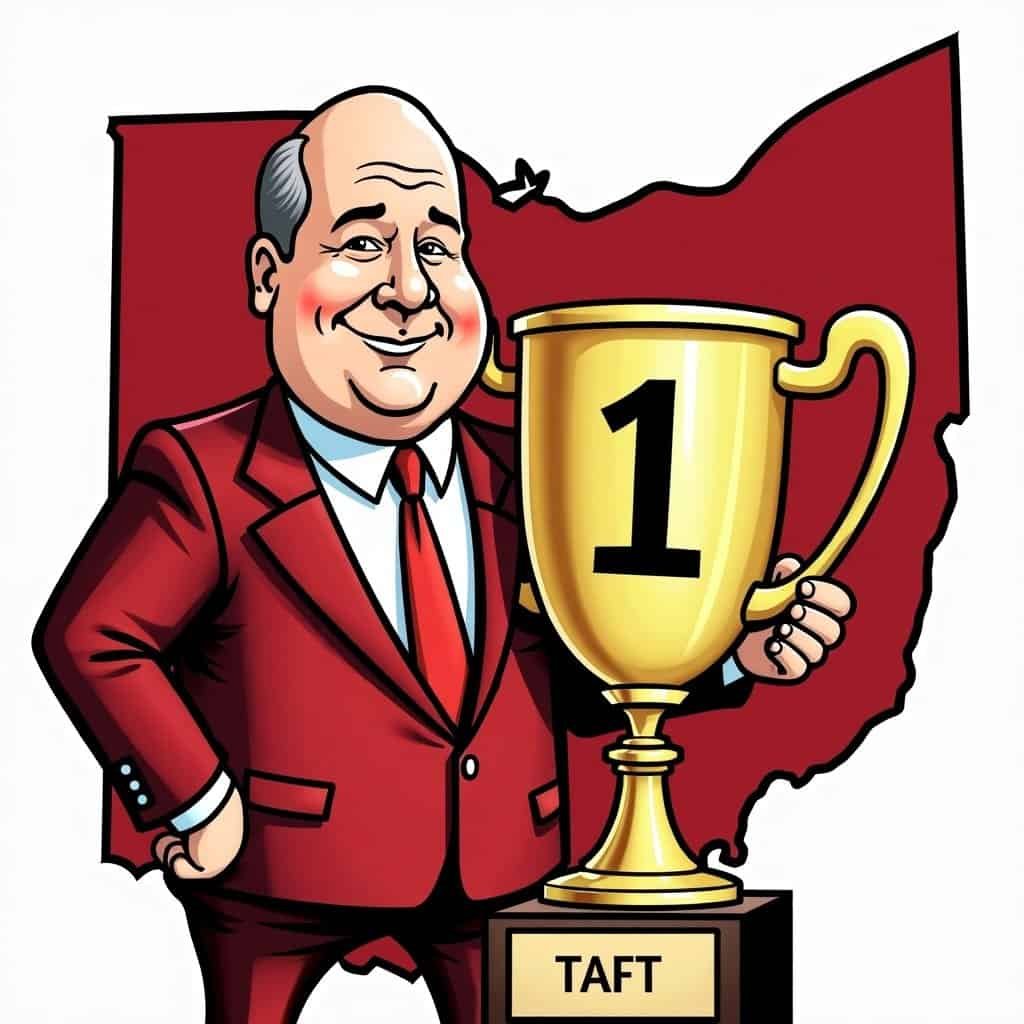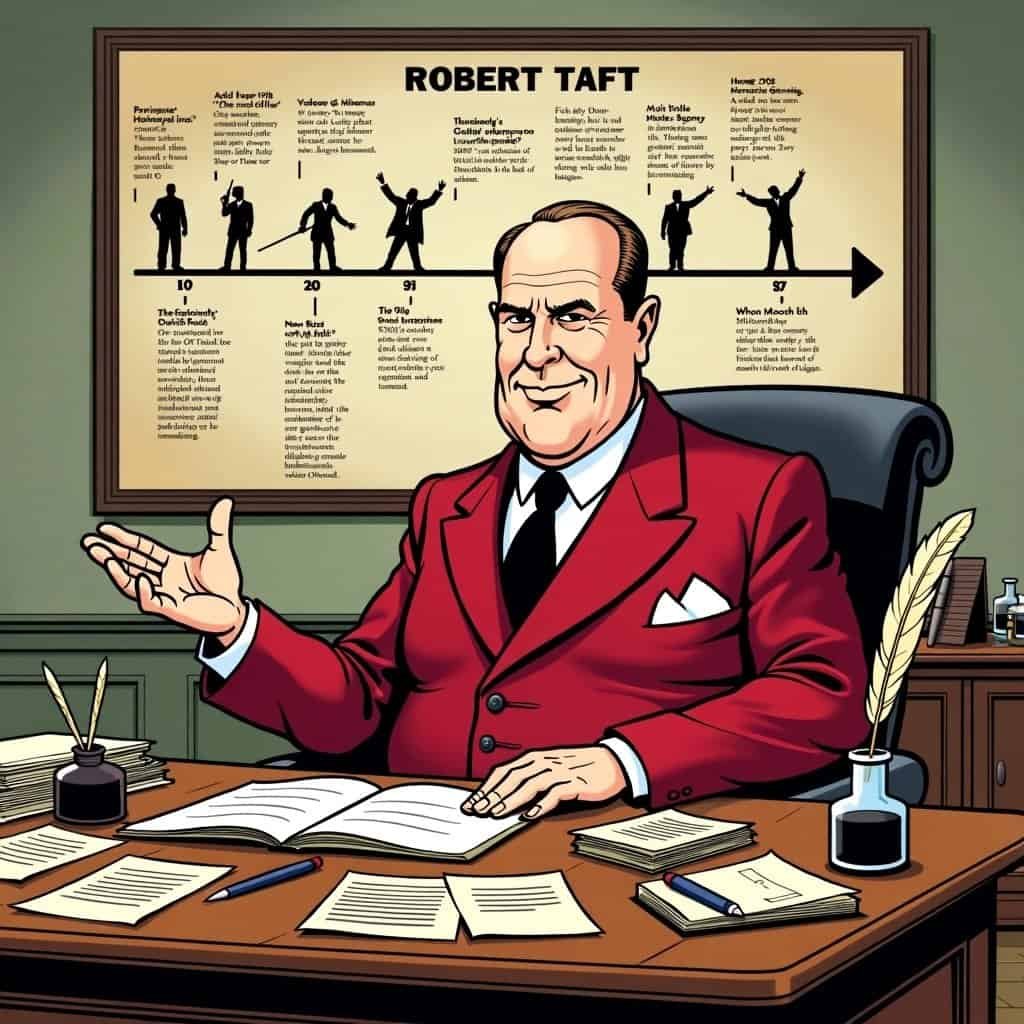Ah, the good ol’ days of the mid-20th century, a golden era when men wore hats, women knew the secrets of perfectly curled hair, and politicians like Robert Taft were steering the ship of American politics with a firm handshake and a soft spot for small business. It’s no secret that Robert Taft was a staunch conservative, a gentleman who, if he were alive today, would probably raise an eyebrow at the abundance of soy lattes and avocado toasts that have somehow become part of our daily grind.
What made Robert Taft a hero among the small business community? Was it his charming bowtie, or perhaps the way he could wield legislative power like a maestro? Well, dear reader, it was his steadfast support for a hands-off economic approach, an ideology that basically left the marketplace to the bright minds of entrepreneurs and innovators, without the government breathing down their necks.
Taft’s Economic Principles
Now, let’s talk shop – not about hats, although those were quite popular back then, but about the economic principles that drove Mr. Taft’s support for small businesses. He believed wholeheartedly in the power of the free market, where hard work and creativity (rather than big government programs) could turn the American Dream into reality for anyone with a bit of gumption. To that end, he championed low taxes and fewer rules, because nothing says “business growth” like letting people keep more of their hard-earned cash and giving them room to breathe.
Taft’s Small Business Recipe
- ✓ Low taxes
- ✓ Minimal regulations
- ✓ Free market principles
- ✓ Limited government intervention
Picture, if you will, a bustling 1950s street, lined with mom-and-pop shops brimming with opportunity, each shop front proudly bearing its owner’s surname – a Smith’s Bakery here, a Johnson’s Hardware there. Under Taft’s watchful eyes, these local heroes flourished in an era where the phrase “government cheese” was something you’d buy at the dairy, not an entitlement program.
Taft vs. Modern Policies
These days, the progressive side of the aisle seems keen on boxing businesses in, weighing them down with rules and taxes that clip their wings. They cook up government-supervised solutions thinking they’ve got all the answers to allocate funds and resources. But folks, it’s clear that Taft’s game plan wasn’t about the government showing small businesses how to fish but rather giving them the freedom to cast their lines into the open sea.
Relevance Today
Why should we give two hoots about Taft’s ideas now in our age of gadgets and gizmos? Because his vision for entrepreneurship hits on a timeless truth: freedom and free enterprise pave the way for innovation – an idea that’s as solid today as it was when Taft was debating federalist principles in the Senate. Supporting small enterprise creates jobs and builds up communities – a cornerstone of conservative economic thinking.
The Taft Effect on Small Business
- Encouraged entrepreneurship
- Promoted job creation
- Fostered community development
- Championed individual freedom
So let’s raise our hats—whether derby or baseball cap—to Robert Taft, who got that thriving businesses mean more than slick campaigns or catchy slogans: they represent lively communities, growth, and most importantly, personal freedom. Here’s hoping that today’s bigwigs in Washington take a page—or maybe the whole book—from the Taft playbook; a love letter to entrepreneurship and the rock-solid belief that America’s greatness comes from its people’s potential, not from the government’s wallet.
As we go back to our lives full of screens and tech, maybe there’s a lesson in keeping things simple from this not-so-distant past. Who knew a bowtie could teach us so much about economics and the beauty of an American dream built on freedom and a sprinkle of good humor? Now, that’s a legacy worth keeping around.

